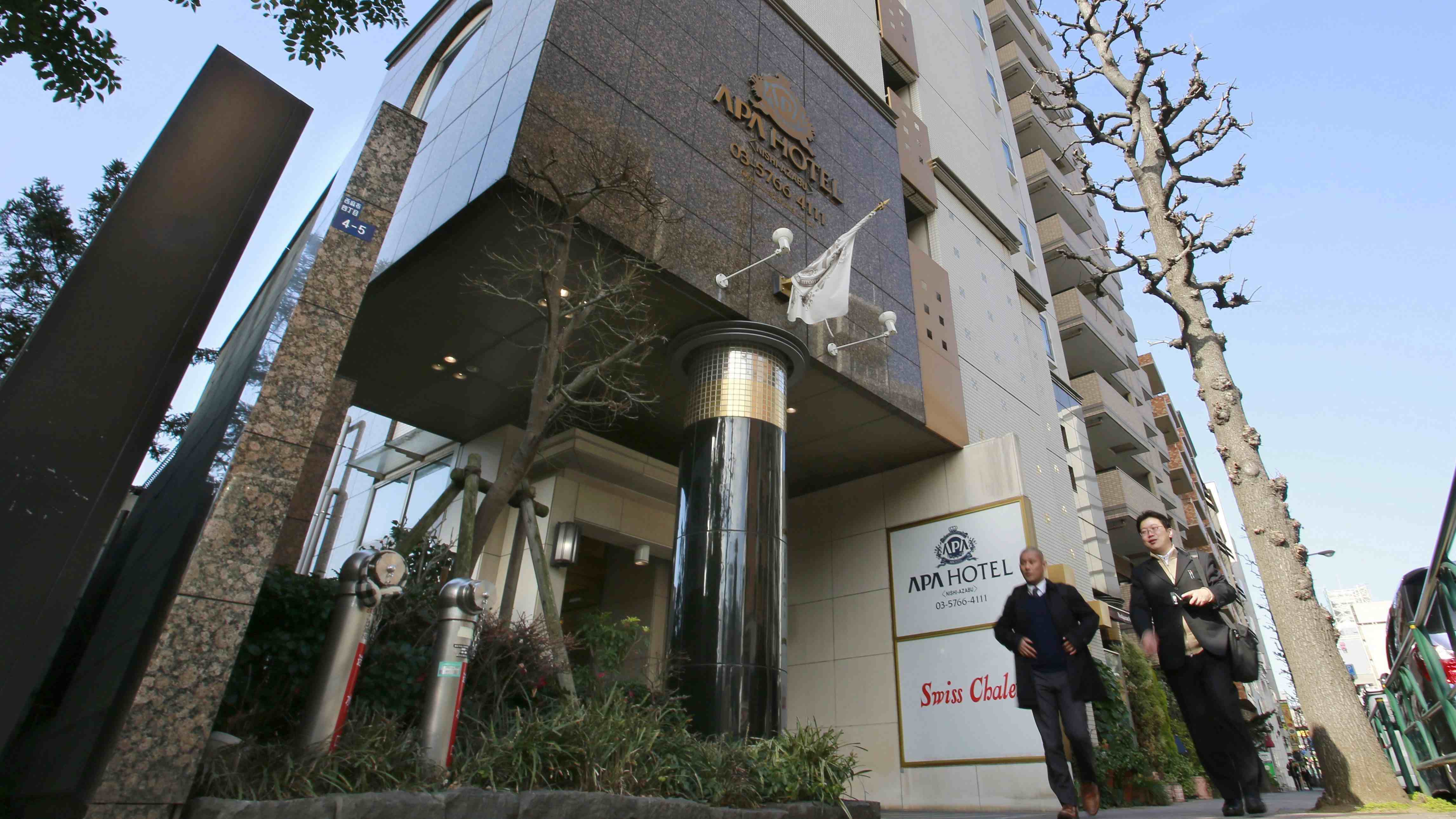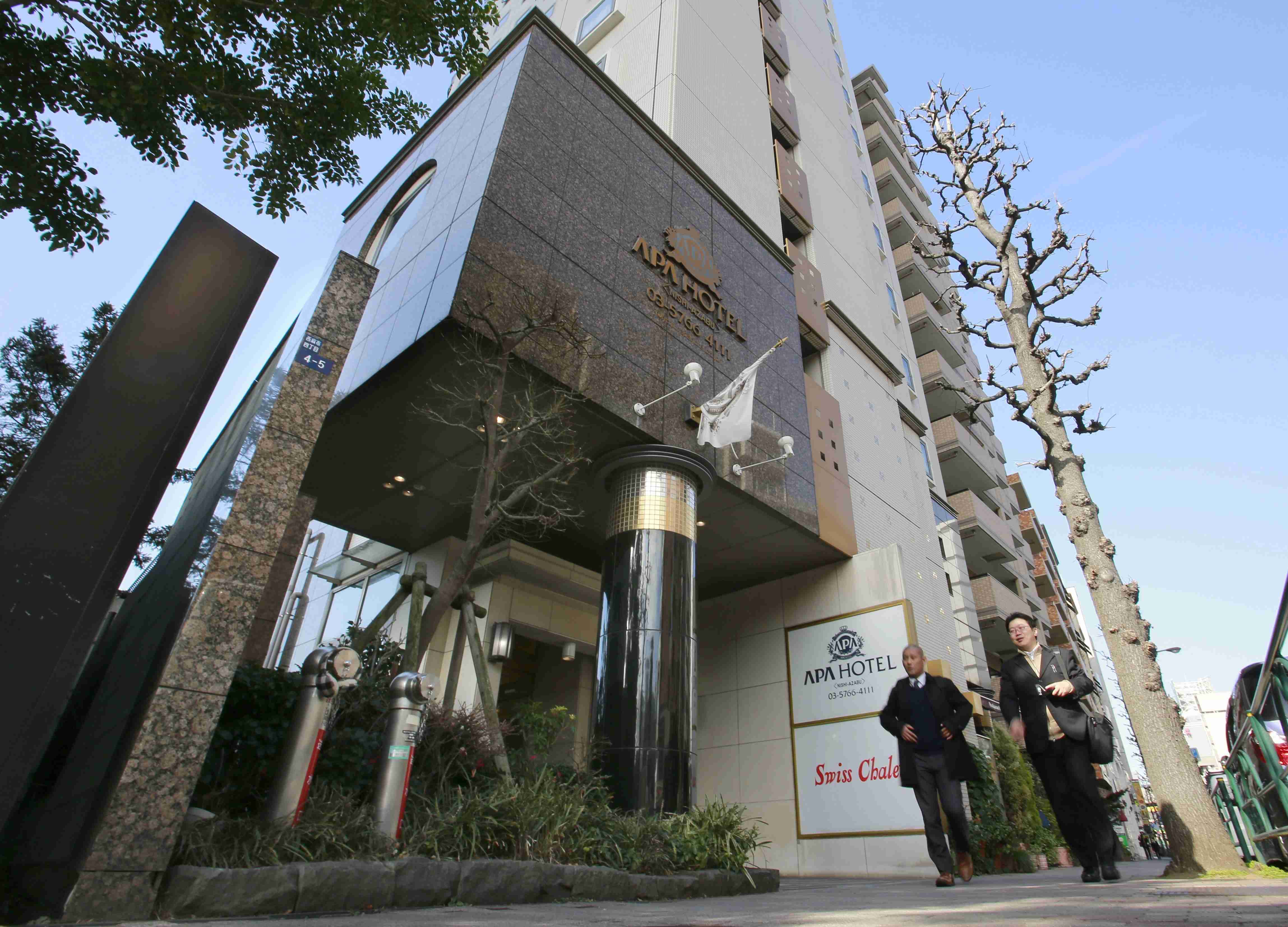
An APA hotel in Tokyo. /Associated Press photo: Shizuo Kambayashi
An APA hotel in Tokyo. /Associated Press photo: Shizuo Kambayashi
After Japanese hotel chain APA angered China for using its hotels to promote a book that denies the Nanjing Massacre and the "comfort women" issue in China and South Korea, a Japanese student studying at Tsinghua University has gained praise for his reaction to the scandal. Already an Internet celebrity, Kosuke said in a video post that he would never stay in an APA hotel, and refused to be represented by any right-wing views.
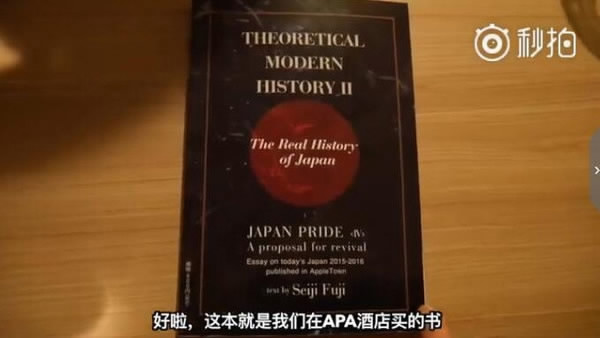
A screenshot of a report showing the controversial book. / Miaopai Photo
A screenshot of a report showing the controversial book. / Miaopai Photo
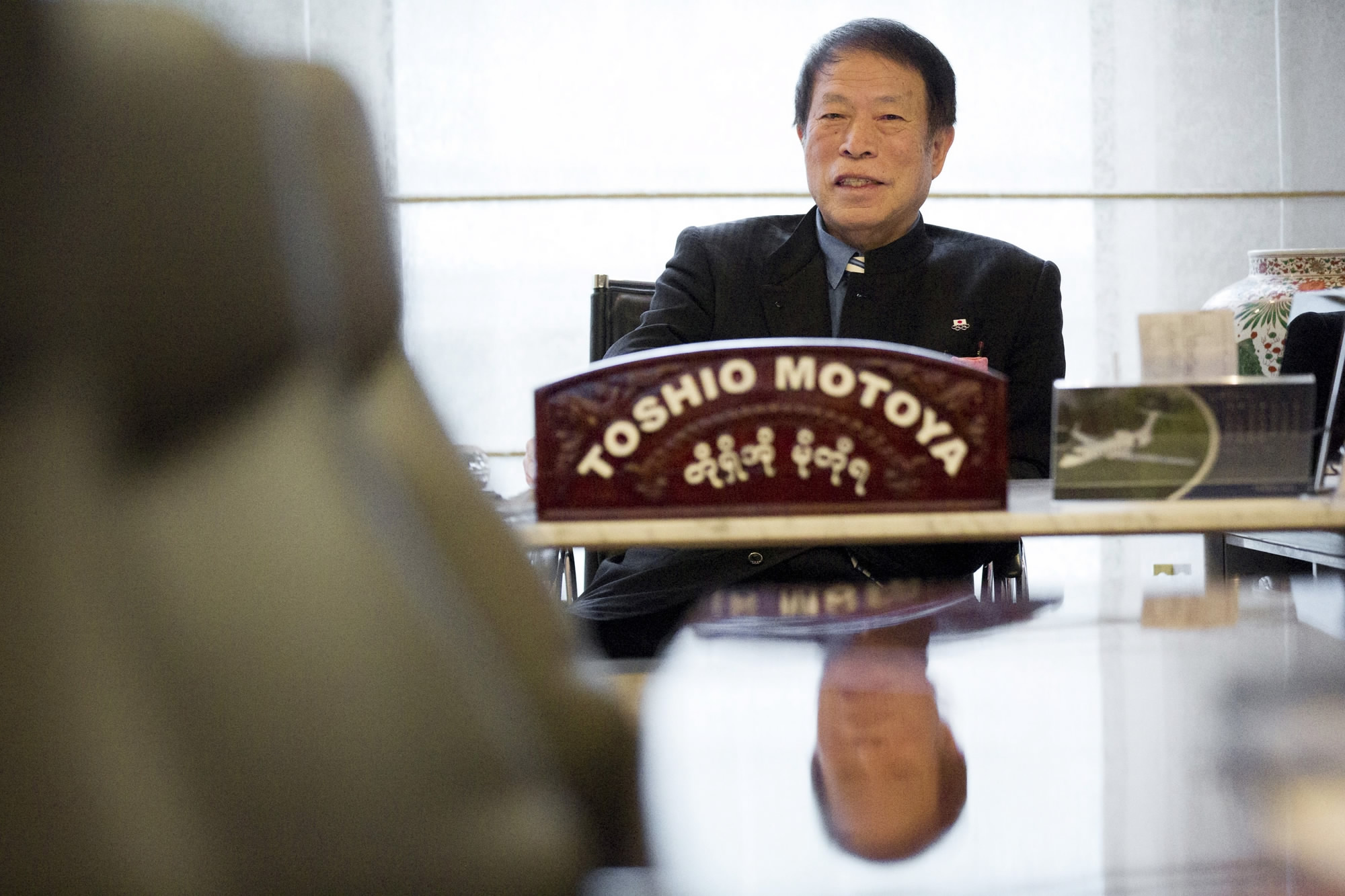
APA Group CEO Motoya Toshio poses for pictures after an interview at the hotel group's headquarters in Tokyo April 17, 2015. /VCG photo
APA Group CEO Motoya Toshio poses for pictures after an interview at the hotel group's headquarters in Tokyo April 17, 2015. /VCG photo
The APA hotel chain sparked online outrage in China, after a 10-minute video was posted on Sina Weibo by user “KatAndSid” on Sunday. The clip implied the APA Group was promoting right-wing views by providing a book, reportedly written by APA Group founder Toshio Motoya under the pen name “Seiji Fuji”, throughout its hotels, that denies historical facts about the Nanjing Massacre and Japan's sexual enslavement of women during World War Two.
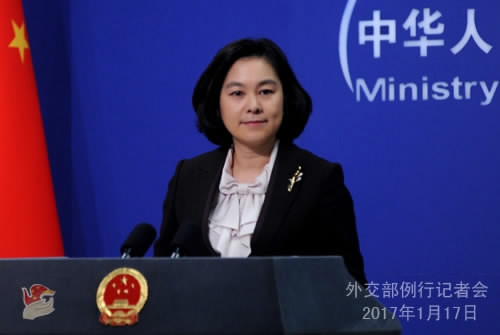
MOFA spokesperson Hua Chunying at a press conference on Tuesday. /MOFA photo
MOFA spokesperson Hua Chunying at a press conference on Tuesday. /MOFA photo
China's Ministry of Foreign Affairs responded on Tuesday, with spokesperson Hua Chunying saying “we have noticed relevant reports, and this once again shows that some forces in Japan are still reluctant to look squarely at history and even try to deny and distort history.” On Wednesday, Japanese Chief Cabinet Secretary Yoshihide Suga reportedly refused to discuss what he called a “civic matter escalated by China’s Ministry of Foreign Affairs.”
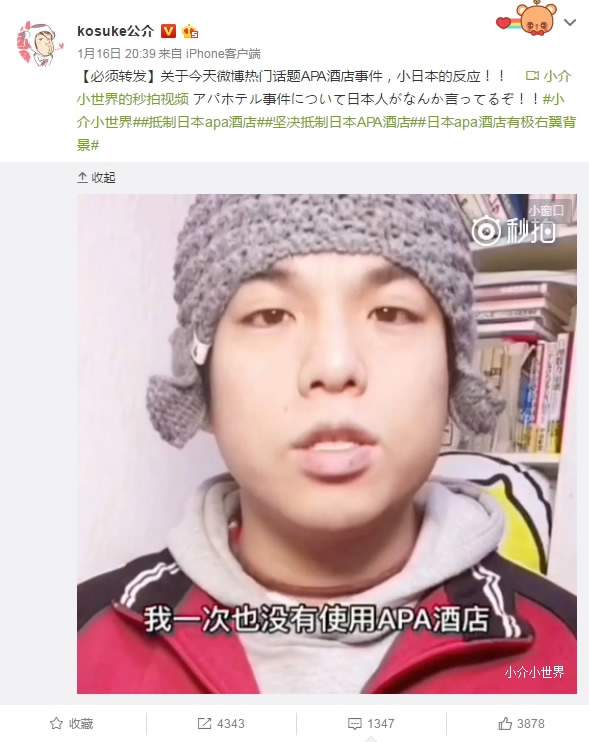
Kosuke's video in reaction to the APA hotel scandal, Jan 16, 2017. /Screenshot of Kosuke's Weibo page
Kosuke's video in reaction to the APA hotel scandal, Jan 16, 2017. /Screenshot of Kosuke's Weibo page
Kosuke, a Sina Weibo user and Internet celebrity who constantly posts fun and leisure-oriented content, uploaded a video on Monday to respond to the case. Speaking in Japanese with Chinese subtitles, he criticized the APA Group for misleading people with its right-wing stance. “What are you doing, APA hotel? You will make the rest of the world believe that all Japanese agree [with your opinion] - which is not true.” He suggested that if “APA Hotel, right-wing” is searched online in Japanese, many results show that the hotel chain has long been associated “with right-wing literature”. Kosuke looked to make clear that the opinions of APA Group’s CEO do not represent those of everyone else in Japan.
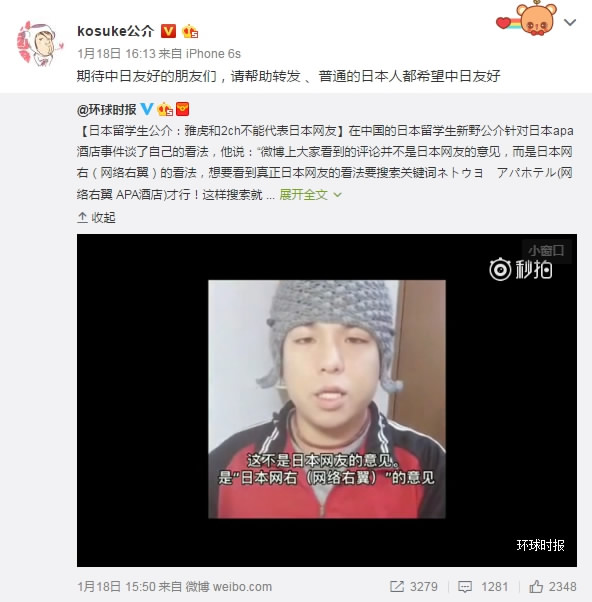
Kosuke reposted his interview with Global Times on Weibo, Jan 18, 2017. /Screenshot of Kosuke's Weibo page
Kosuke reposted his interview with Global Times on Weibo, Jan 18, 2017. /Screenshot of Kosuke's Weibo page
In an interview with Global Times on Wednesday, Kosuke said although there are some incendiary views posted on websites like Yahoo and 2channel (2ch) from provocative right-wing netizens, most Japanese can sympathize with a Chinese boycott of APA hotels. Kosuke himself said that he had read about the Nanjing Massacre in Chinese text books and had visited memorial halls in Harbin and Nanjing to victims of Japanese aggression. “A civilian does not have the authority to decide how others should be educated when it comes to history,” he said. “So I think it is important for me to get informed via all sources, to digest and comprehend and to communicate with Chinese people, based on my own self-education.” Kosuke shared his interview via Weibo, hoping individuals could spread the truth about the real, friendly relationship that can and does exist between China and Japan.
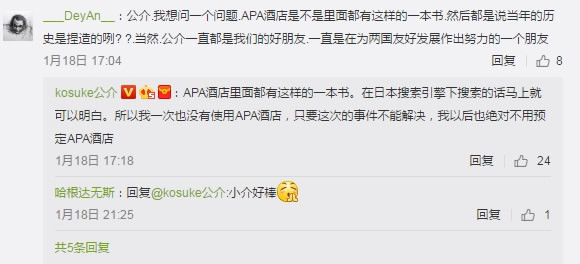
Kosuke discusses the APA hotel scandal with a user. /Screenshot of Kosuke's Weibo page
Kosuke discusses the APA hotel scandal with a user. /Screenshot of Kosuke's Weibo page
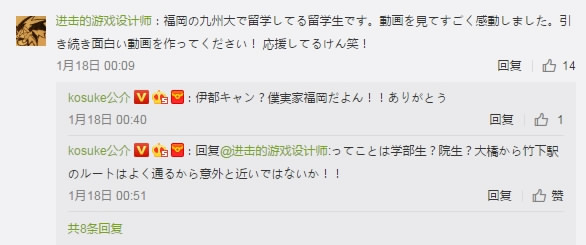
A Chinese student in Japan shows his support to Kosuke, writing in Japanese. "I am an international student studying abroad at Kyushu University in Fukuoka. I was deeply impressed watching your video. Continue to make funny videos! I support you!" / Screenshot of Kosuke's Weibo page
A Chinese student in Japan shows his support to Kosuke, writing in Japanese. "I am an international student studying abroad at Kyushu University in Fukuoka. I was deeply impressed watching your video. Continue to make funny videos! I support you!" / Screenshot of Kosuke's Weibo page
Kosuke is not alone among young Japanese students who contribute to the cultural exchange between the two countries. In 2015, there were 78,800 Chinese students studying in Japan, marking 55.9 percent of overseas students in the country, while 14,084 Japanese students were studying in China, according to data from the Center for China and Globalization released at the end of 2016.
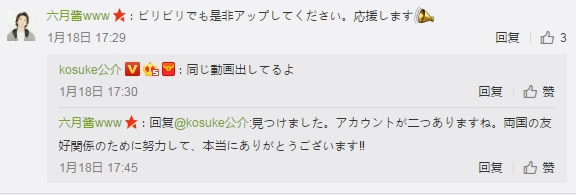
A Chinese Weibo user asks Kosuke to post his clip on popular video-sharing platform Bilibili in Japanese. "Please upload this video on Bilibili as well! I support you!" / Screenshot of Kosuke's Weibo page
A Chinese Weibo user asks Kosuke to post his clip on popular video-sharing platform Bilibili in Japanese. "Please upload this video on Bilibili as well! I support you!" / Screenshot of Kosuke's Weibo page
With a shared enthusiasm in many areas including animations, comics, games and novels (ACGN) as a key bridge between the youth of both countries, Japanese and Chinese youngsters now have even more chances to communicate. Popular ACGN video-sharing websites like Chinese-language Bilibili and Japanese-language Niconico have all become key platforms for discussion and the exchange of views.

